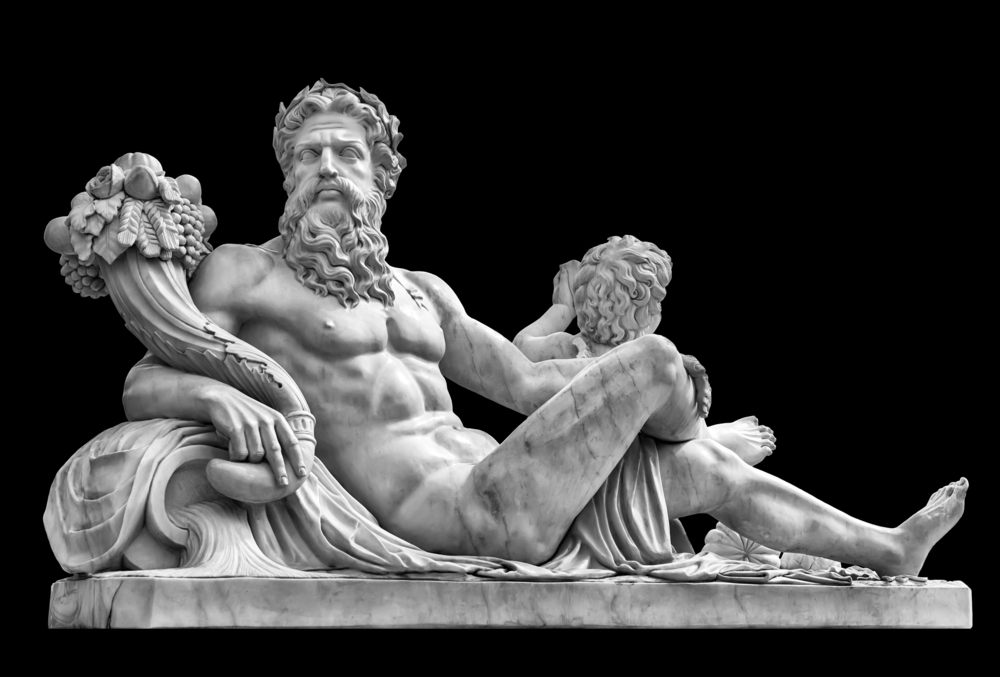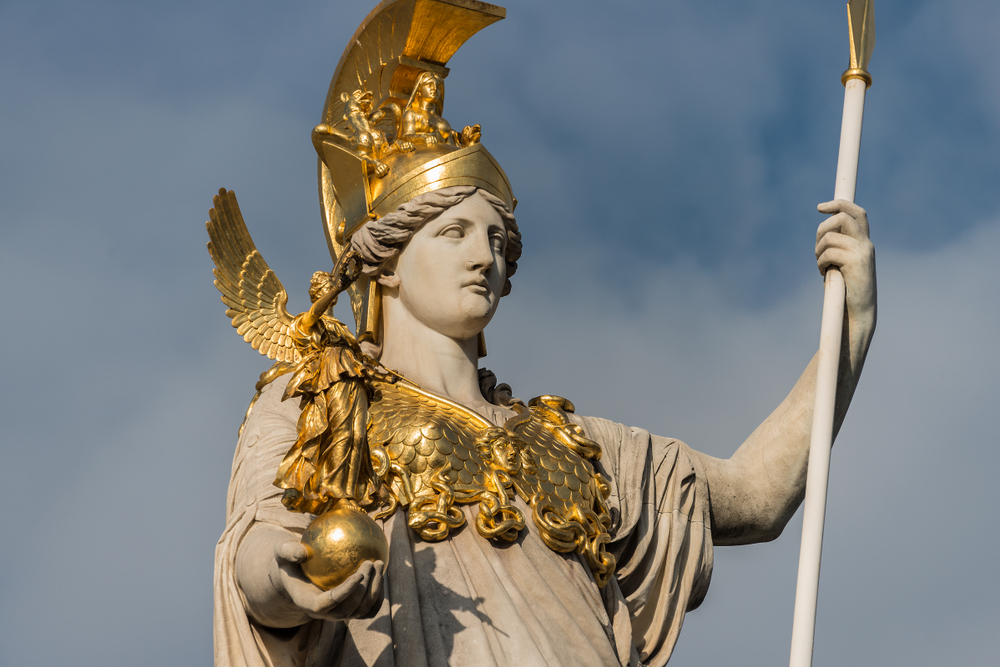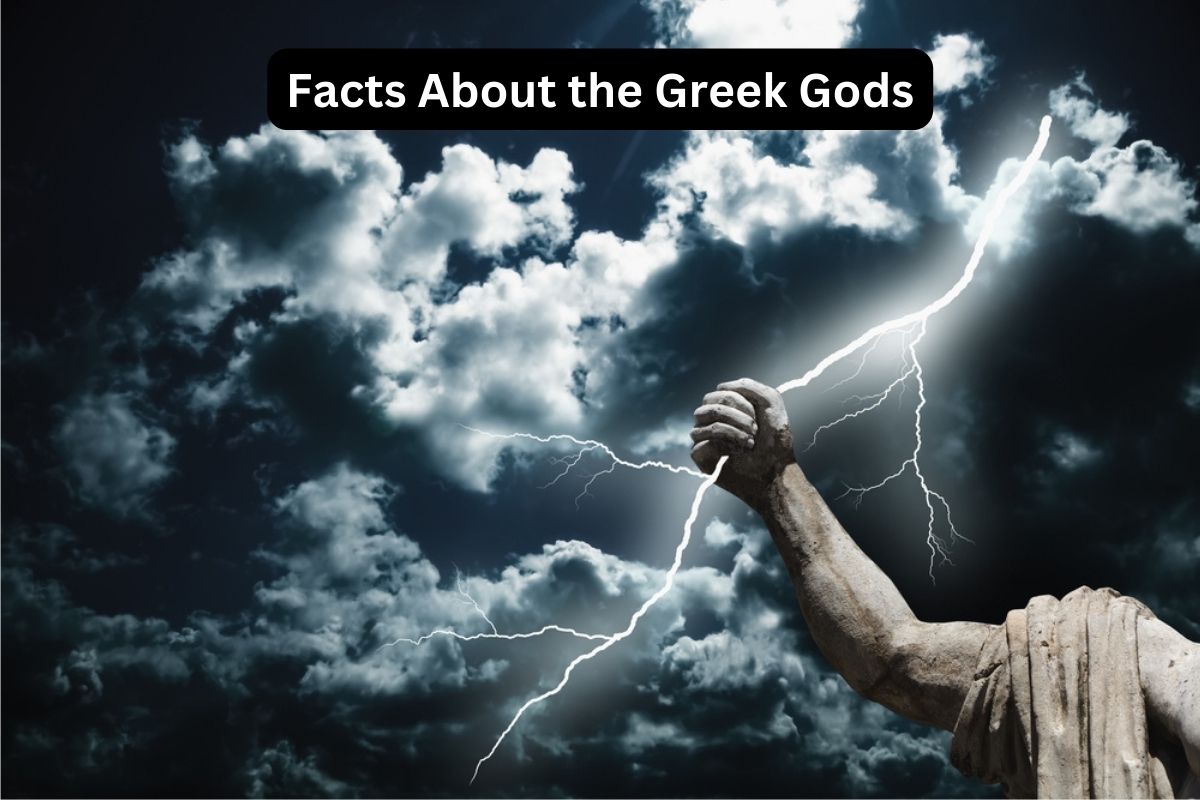In ancient Greek mythology, the gods played a central role in the lives of the people. These gods and goddesses were believed to have resided on Mount Olympus and possessed extraordinary powers over various aspects of life and nature.
They were known as the Olympians and were led by Zeus, the king of the gods. Each deity had a unique domain and personality, shaping the beliefs and practices of the ancient Greeks.
From the mighty Zeus and the tempestuous Poseidon to the enchanting Aphrodite and the wise Athena, the Greek gods were a diverse and captivating pantheon that influenced the culture, art, and religious practices of ancient Greece.
Greek Gods Facts
1. Greek gods resided on Mount Olympus
According to Greek mythology, Mount Olympus was believed to be the dwelling place of the gods. It was the highest mountain in Greece and was considered a sacred place.
Also Read: Homer Facts
The gods were said to reside there in magnificent palaces, enjoying an eternal existence of power and immortality.
2. Zeus was the king of the gods
Zeus was the most powerful of the Greek gods and the ruler of Mount Olympus. He was the god of the sky, thunder, and lightning.
Also Read: Facts About Greek Mythology
As the king of the gods, Zeus was responsible for maintaining order and justice in the world. He was often depicted as a bearded man wielding thunderbolts, symbolizing his authority and power.

3. Poseidon was the god of the sea
Poseidon was one of the major gods in Greek mythology and the brother of Zeus. He was the god of the sea, rivers, earthquakes, and horses. Poseidon was often depicted as a bearded man holding a trident, a three-pronged spear that represented his dominion over the sea.
Also Read: Timeline of Greek Mythology
He had a tempestuous and unpredictable nature, capable of causing storms and earthquakes at will. Sailors and seafarers would often pray to Poseidon for safe voyages and favorable winds.
4. Hades ruled the underworld
Hades was one of the major Greek gods and the brother of Zeus and Poseidon. He was tasked with ruling the underworld, a realm where the souls of the dead resided. Hades was often portrayed as a stern and somber figure, wearing a dark cloak and holding a scepter.
He was not typically depicted as an evil deity but rather as a strict guardian of the afterlife. The ancient Greeks held rituals and ceremonies to honor and appease Hades in order to ensure the peaceful passage of the deceased to the underworld.
5. Aphrodite was the goddess of love and beauty
Aphrodite was a prominent goddess in Greek mythology, known for her beauty and allure. She was born from the sea foam and was often depicted as a graceful and seductive figure.
Aphrodite presided over love, desire, beauty, and fertility. She had the power to inspire romantic love and passion in both gods and mortals.
Aphrodite was associated with various symbols, including roses, doves, and seashells. Her influence extended to the realms of art, poetry, and music, as her beauty was a source of inspiration for artists and musicians.
6. Athena was the goddess of wisdom and warfare
Athena was a highly revered goddess in Greek mythology, known for her wisdom, strategic prowess, and courage in battle.
She was believed to be born fully grown from the head of Zeus. Athena was the patron goddess of wisdom, intelligence, arts and crafts, and strategic warfare. She was often depicted as a warrior goddess, wearing a helmet and carrying a shield and spear.
Athena was a symbol of wisdom, justice, and civilization. She was particularly venerated in Athens, where the Parthenon was dedicated to her worship. The city considered her as its protector and named after her.

7. Apollo was the god of music and the sun
Apollo was a prominent deity in Greek mythology, known for his multifaceted domain. He was the god of music, poetry, prophecy, healing, and the sun.
He was often depicted as a youthful and handsome figure, playing a lyre or holding a laurel wreath. He was believed to inspire musicians, poets, and artists, and was associated with the harmony and beauty of music.
Apollo was also associated with the sun, symbolizing light, knowledge, and enlightenment. In addition, Apollo was regarded as a god of healing and medicine, as he had the power to both inflict and cure diseases.
8. Artemis was the goddess of the hunt and the moon
Artemis was a revered goddess in Greek mythology, known for her connection to nature, the wilderness, and the moon. She was the twin sister of Apollo and the daughter of Zeus.
Artemis was often depicted as a young huntress, carrying a bow and arrows, accompanied by a pack of hunting dogs. She was the patroness of the hunt, protecting wild animals and overseeing the welfare of hunters.
As the goddess of the moon, Artemis was associated with its cycles and represented its serene and mysterious aspects. She was also regarded as the protector of young girls and the guardian of childbirth.
9. Hermes was the messenger of the gods
Hermes played a crucial role in Greek mythology as the messenger of the gods and the patron of travelers, trade, and thieves. He was depicted as a youthful figure with winged sandals and a winged helmet, symbolizing his swiftness.
Hermes had the ability to travel freely between the realms of gods, mortals, and the underworld, delivering messages and guiding souls.
He was also associated with commerce and invention, revered as the god of boundaries and the protector of travelers. Hermes was seen as a cunning and clever deity, often depicted as a trickster figure.
10. Hephaestus was the god of fire and craftsmanship
Hephaestus was a skilled artisan and the god of fire, metalworking, and craftsmanship. He was the son of Zeus and Hera. Hephaestus was often portrayed as a bearded and muscular figure, wielding a hammer and anvil.
He was considered the blacksmith of the gods, creating intricate and powerful weapons, armor, and other divine artifacts.
Despite being physically impaired, Hephaestus was highly skilled in his craft and was respected for his artistry. He was also associated with volcanic activity and the transformative power of fire. Hephaestus was married to Aphrodite, the goddess of love, although their relationship was often fraught with drama and infidelity.
